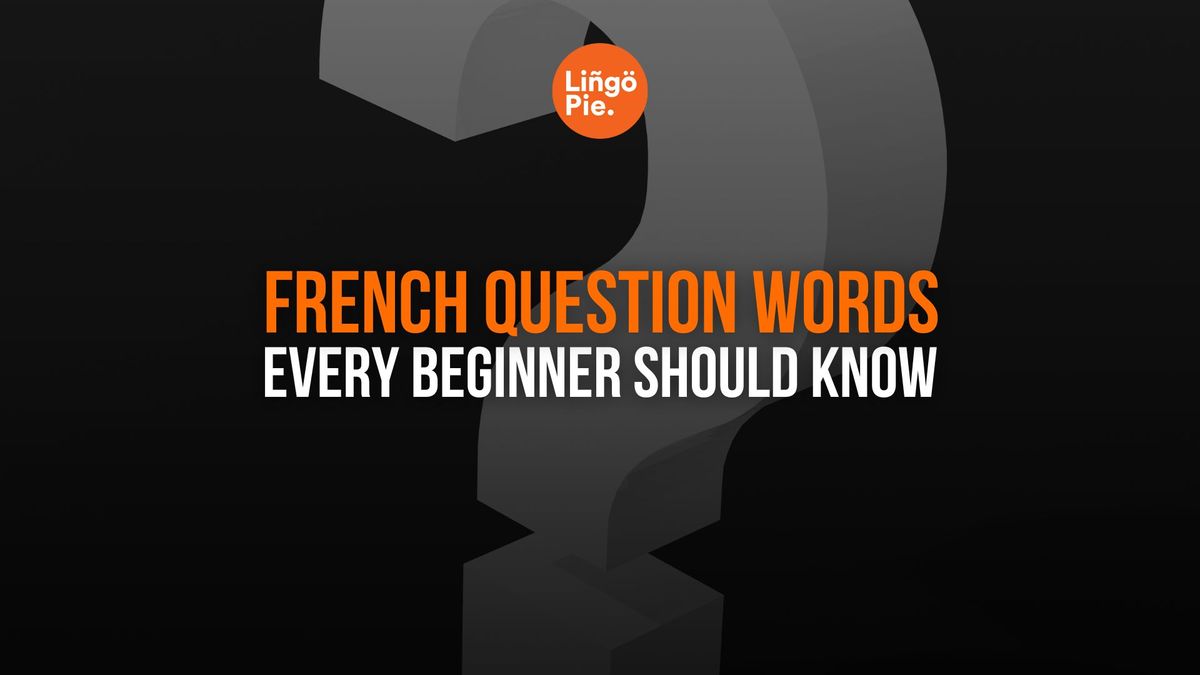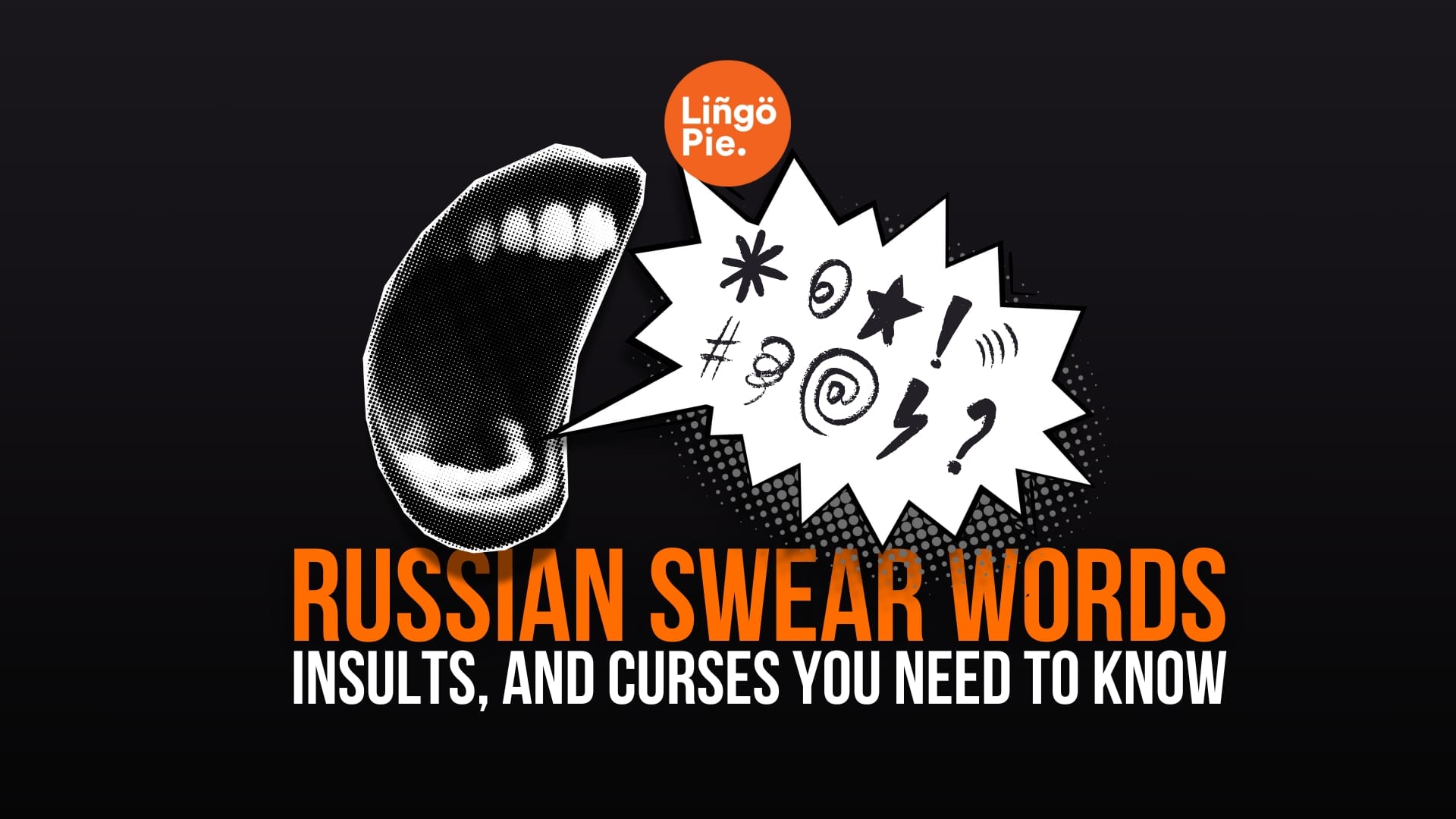When you're starting to learn French, knowing how to ask questions is absolutely essential. Think about it - how else will you ask for directions, order at restaurants, or understand what someone is saying? While French has multiple ways of forming questions, mastering these 10 basic question words will immediately boost your ability to communicate.
Let's cut straight to the chase and explore these fundamental French question words that you'll use in everyday conversations.
How to ask a question using a French question word?
In French, forming questions with question words follows a specific structure that might feel different from English. The good news? Once you understand the pattern, it becomes quite straightforward. Here's the basic formula: Question Word + Verb + Subject.
This grammatical structure involves what's called "inversion of the subject" (l'inversion du sujet), where we flip the normal subject-verb order. Let's break down the structure with clear examples that identify each element.
Example 1: "Où habitez-vous ?"
- Question Word: Où (Where)
- Verb: habitez (live - conjugated form of "habiter")
- Subject: vous (you) English: "Where do you live?"
Example 2: "Quand Marie part-elle ?"
- Question Word: Quand (When)
- Subject (noun): Marie
- Verb: part (leaves - conjugated form of "partir")
- Subject (pronoun): elle (she) English: "When is Marie leaving?"
Example 3: "Comment s'appelle-t-il ?"
- Question Word: Comment (How/What)
- Verb: s'appelle (is called - reflexive verb "s'appeler")
- Subject: il (he) English: "What is his name?"

Basic French Question Words For Beginners
Qui (Who)
"Qui" is a French question word which means "who" or "whom." This French word can function as either a subject (doing the action) or an object (receiving the action) in your questions. You'll also commonly see "qui" used after prepositions like "avec" (with), "pour" (for), or "de" (of/from).
- Qui parle français dans la classes ? (Who speaks French in the class?)
- Avec qui est-ce que tu habites ? (Who do you live with?)
- Pour qui est ce cadeau ? (Who is this gift for?)
Notice how "qui" changes its role in questions based on what you're asking. When you're asking about someone performing an action (like "Who speaks?"), "qui" is your subject. When you're asking about someone receiving an action or following a preposition (like "With whom?"), it becomes the object.
Que/quoi (What)
"Que" and "quoi" are French question words that both mean "what," but they're used in different situations. "Que" appears at the beginning of questions, while "quoi" typically comes at the end of questions or after prepositions. Unlike other French question words, you'll never find "que" or "quoi" being used as prepositions themselves.
- Que veux-tu manger ? (What do you want to eat?)
- Qu'est-ce que tu fais ? (What are you doing?)
- Tu fais quoi ? (What are you doing?)
To make sure you understand how to use que and quoi correctly, check out this cheatsheet below.
| Word | Usage | Example |
|---|---|---|
| Que | Appears in direct questions before a verb (often formal). | Que veux-tu ? (What do you want?) |
| Commonly used in "Qu'est-ce que" structures (informal, very common). | Qu'est-ce que tu fais ? (What are you doing?) | |
| Appears in "Qu'est-ce qui" when "what" is the subject of the verb. | Qu'est-ce qui se passe ? (What is happening?) | |
| Quoi | Used at the end of informal questions. | Tu fais quoi ? (What are you doing?) |
| Appears after prepositions like à, de, or pour. | À quoi penses-tu ? (What are you thinking about?) | |
| Used as a standalone question for emphasis. | Quoi ? (What?) |

Où (Where)
"Où" is a French question word which means "where," used to ask about locations, places, and destinations. It's important not to confuse this French question word with "ou" (without an accent) which means "or" - this small accent mark makes a big difference in meaning!
- Où habites-tu ? (Where do you live?)
- D'où viens-tu ? (Where are you from?)
- Où est-ce que tu vas ? (Où est-ce que tu vas ?)
Remember that writing "ou" instead of "où" will completely change your question's meaning. Think of the accent mark as a little ARROW pointing to the location you're asking about.
Quand (When)
"Quand" is a French question word that means "when," used to ask about time, events, and schedules. It helps you inquire about when something happens, happened, or will happen.
- Quand pars-tu en vacances ? (When are you leaving for vacation?)
- Depuis quand habites-tu à Paris ? (Since when have you been living in Paris?)
- Quand est-ce que le film commence ? (When does the movie start?)
"Quand" can also introduce dependent clauses, like "Appelle-moi quand tu arrives" (Call me when you arrive). This makes it a versatile word for both questions and statements about time.
Pourquoi (Why)
"Pourquoi" is a French question word which means "why," used to ask about reasons, motivations, and explanations. This question word helps you understand the cause or purpose behind actions and situations.
- Pourquoi es-tu en retard ? (Why are you late?)
- Pourquoi est-ce que tu apprends le français ? (Why are you learning French?)
- Pour quoi faire ? (What for? (literally: For what to do?))
When someone asks you "Pourquoi?", you can respond with "Parce que..." (Because...). These are natural conversation partners in French, just like in English.

Comment (How)
"Comment" is a French question word which means "how," used to ask about the manner, way, or method of doing something. It's an essential word for learning about processes, requesting descriptions, or asking about someone's state of being.
- Comment allez-vous ? (How are you?)
- Comment est-ce que tu as appris le français ? (How did you learn French?)
- Comment faire une quiche ? (How do you make a quiche?)
"Comment" is particularly useful in daily conversations because it helps you learn new skills, understand processes, and show interest in others' well-being. Remember that "Comment allez-vous ?" is more formal than "Comment vas-tu ?" - both mean "How are you?" but are used in different social contexts.
Quel? (Which)
"Quel" is a French question word that changes its form based on gender and number (quel, quelle, quels, quelles), meaning "which" or "what." It's used to ask about specific choices or characteristics and must agree with the noun it describes - making it one of the more adaptable French question words.
| Gender | Singular | Plural |
|---|---|---|
| Masculine | quel | quels |
| Feminine | quelle | quelles |
Example sentences:
- Quel est ton film préféré ? (What is your favorite movie?)
- Quelle heure est-il ? (What time is it?)
- Quels livres as-tu lus ? (Which books have you read?)
Always check the gender and number of the noun you're asking about before choosing which form of "quel" to use. When in doubt, look at the article (le/la/les) that normally goes with the noun - this will tell you which form you need.
Combien (How much/how many)
"Combien" is a French question word used to ask about quantity, price, or measurement. Whether you're shopping, discussing numbers, or asking about time, "combien" helps you inquire about amounts.
- Combien coûte ce livre ? (How much does this book cost?)
- Combien de temps faut-il ? (How much time does it take?)
- Combien d'amis as-tu ? (How many friends do you have?)
When asking about quantity, always use "combien de" followed by the noun. The only exception is when you're asking about price, where you can use "combien" directly with the verb "coûter" (to cost).

À qui (Whose)
"À qui" is a French question phrase that combines the preposition "à" with the question word "qui" to mean "whose" or literally "to whom." This phrase is essential when asking about possession or ownership.
- À qui est ce sac ? (Whose bag is this?)
- À qui dois-je donner ce livre ? (To whom should I give this book?)
- À qui sont ces clés ? (Whose keys are these?)
Unlike English, where we can simply put "whose" at the beginning of a question, French requires the full "à qui" construction. This might feel awkward at first, but it follows the logical pattern of "to whom does this belong?" Here are some of the common structures:
- À qui est + singular noun
- À qui sont + plural noun
- À qui + verb + subject
À quoi (Of what)
"À quoi" is a French question phrase combining the preposition "à" with "quoi," used to ask about purpose, use, or reference. It's particularly useful when asking what something is for, what someone is referring to, or what activity someone is engaging with.
- À quoi sert cet outil ? (What is this tool for?)
- À quoi penses-tu ? (What are you thinking about?)
- À quoi ça correspond ? (What does this correspond to?)
"À quoi" is essential for daily conversations as it helps you understand the purpose of things and engage in deeper discussions about thoughts and ideas. It's particularly useful when you need to ask about the function or purpose of something you don't recognize.

Learn French Question Words With Lingopie
Now that you're equipped with these essential French question words, it's time to hear them in action! While memorizing these words is important, hearing them used in real French conversations is the key to truly understanding their usage and natural flow.
Ready to level up your French question game? Head over to Lingopie, where you can immerse yourself in authentic French TV shows and movies. You'll hear native speakers using these question words in real contexts. With Lingopie's interactive subtitles and learning features, you can:
- Watch how French speakers naturally incorporate these question words
- Learn the correct pronunciation and intonation
- Understand the subtle differences between formal and informal usage
- See how these questions work in various real-life scenarios
Remember, the best way to internalize these question words is to hear them in context. French movies and TV shows provide that authentic exposure you need to move from understanding to actually using these questions confidently in your own conversations.
Start watching with Lingopie today and transform your French question-asking abilities from textbook knowledge to natural conversation!










